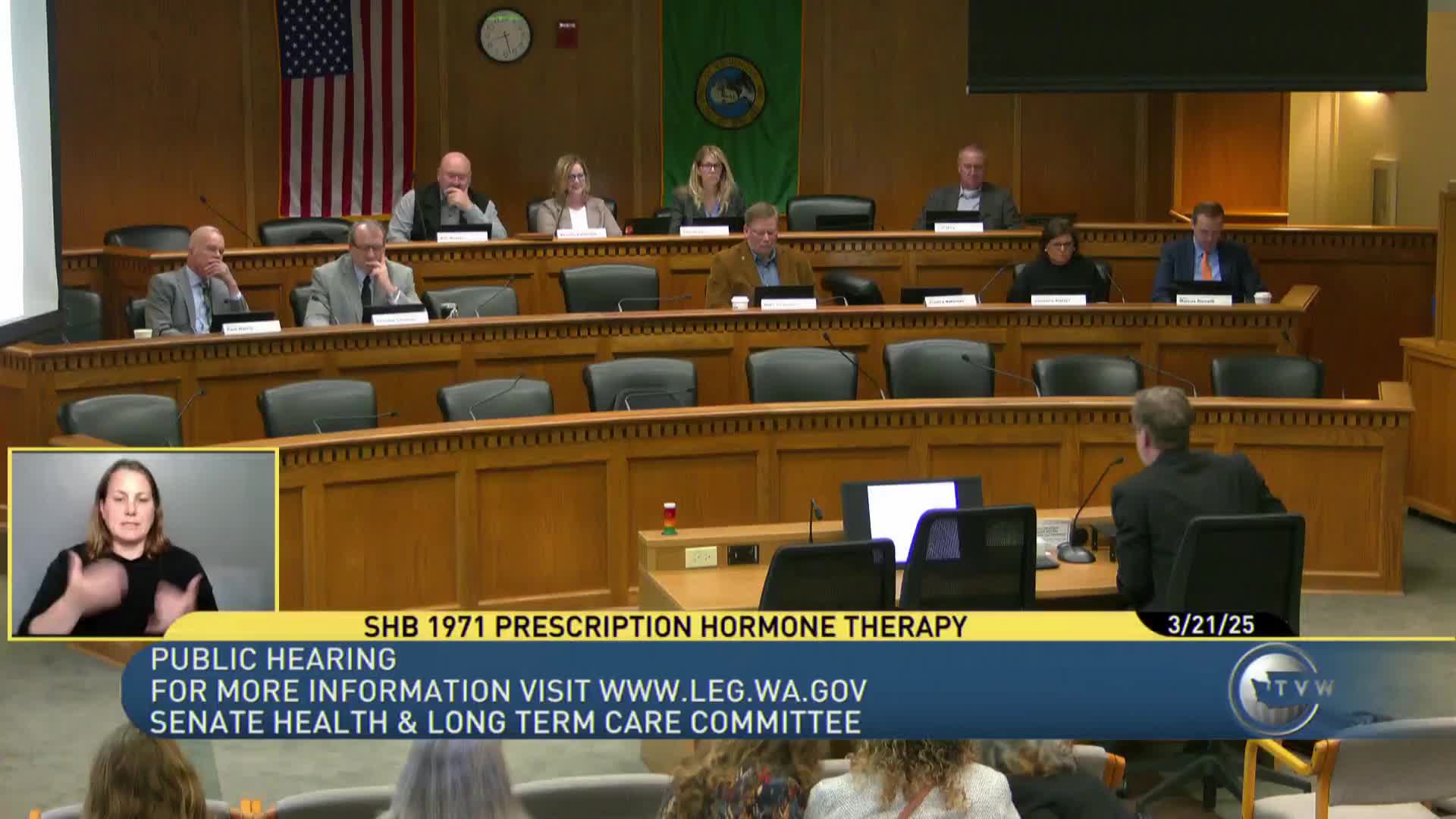Committee hears broad testimony supporting insurer reimbursement for 12‑month hormone refills
Get AI-powered insights, summaries, and transcripts
Subscribe
Summary
The Senate Health & Long Term Care Committee heard extensive, largely proponent testimony on a bill that would require insurers to reimburse a 12‑month supply of prescription hormone therapy at once, with supporters saying the change reduces treatment interruptions for transgender and other patients who use hormones.
The Senate Health & Long Term Care Committee heard testimony supporting a bill that would require health plans that cover prescription hormone therapies to reimburse a 12‑month refill at one time when that duration is medically appropriate.
Nathan Bays, representing the governor’s office, told the committee the measure “represents good governance” and would let patients obtain longer supplies of shelf‑stable prescriptions in a way that protects privacy and safety. Multiple individuals with lived experience described the bill as lifesaving for transgender and nonbinary patients who use hormone therapy.
Blake Burgess, testifying for himself, said he is a 42‑year‑old trans man and described screening, stigma and the “deeply uncertain times” that shape access to care. Jenna Comstock, vice president of a statewide advocacy group, urged passage to allow insured patients to secure year‑long supplies and avoid out‑of‑pocket purchases; she cited a Human Rights Campaign analysis, saying many trans adults have lower earnings and higher poverty rates, which can make paying up front for 12 months’ medication impossible.
Clinicians also testified. Eric Janssen, family nurse practitioner and program director for gender-affirming care at Planned Parenthood of the Great Northwest, said monthly refill requirements place an unnecessary burden on patients and pharmacists and increase the risk of gaps in care. Cora Bruner, a pediatrician at the University of Washington and Seattle Children’s Hospital representing the Washington chapter of the American Academy of Pediatrics, said one‑year prescriptions would reduce stress for adolescents and families who must travel or take time off repeatedly for short refills.
Multiple public commenters described strategies they use to avoid interruptions, including rationing or ‘‘stockpiling’’ medication in response to political uncertainty about access. Testimony also noted that hormone therapy is used by some people for other medical reasons such as treatment for polycystic ovary syndrome or menopause symptoms.
The committee paused for other items and closed the hearing on the bill; no roll‑call vote on the measure is recorded in the transcript. Committee members asked clarifying questions about Department of Health involvement and whether the bill would be limited to specific facilities; supporters said the measure is intended to be consistent with clinical judgment and not to create new mandates on medical decision‑making.
Advocates urged passage to reduce administrative burden, remove financial barriers and lower the risk of treatment gaps, while noting the measure would preserve clinicians’ ability to determine what is medically appropriate for an individual patient.
